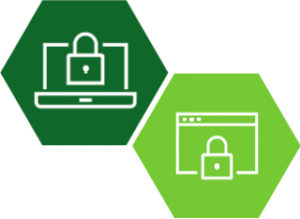Widespread protests. Civil unrest. Calls for police reform. COVID-19. The underlying social and political tensions in many countries have been boiling over.
These interrelated issues form a web of political risk that substantially impacts your business. How can company boards and the C-suite be aware of how these seemingly isolated and disparate events will impact their operations and then work to mitigate these effects?
Common political risks to anticipate and avoid
Political risks can be detrimental to a company’s finances, operations, and reputation. Common risks that your company might face when dealing with a global marketplace include:
- Transnational or geopolitical risks stem from uncertainties due to increased volatility following political or regime change in previously stable countries.
- National or country-level risks result from erratic governments or institutions that have fiscal consequences for the domestic market and its businesses.
- Regulatory risk results from complex new environmental or labor standards, such as changes in rates for heavily regulated utilities or adjustments in workforce requirements.
- Societal risks emerge when groups — everything from trade unions to consumers — launch public activism, including boycotts, work stoppages and anti-government or anti-company protests that affect markets and companies that operate globally.
Societal risks are obviously on everyone’s mind these days. Workers for McDonald’s, Amazon, Instacart, Whole Foods, Walmart, Target, FedEx and other companies have staged strikes over the last several months in response to increasingly precarious working conditions during the COVID-19 pandemic.
“Essential workers” have walked out on the job or staged “sick-outs.” As well, customers have boycotted businesses, such as on the May 1 “May Day Strike.” Outcry from customers has had visible effects, such as AMC Theaters’ reversal on requiring masks when the movie theater chain reopens.
In addition, many companies have managed risk to their reputations with their responses to recent protests for racial equality with pledged support for combating systemic racism across the United States, says the Washington Post. The benefits of support for this topic are now considered to outweigh the business risk of speaking on controversial issues. Being viewed as an ally can reveal new target audiences and demographics for growing businesses.
How can an ERM solution help?
Actively managing political risk with your enterprise risk management (ERM) solution can enable your organization to include clear identification, assessment, monitoring and management of political risks as part of your risk management program. In addition, managing this category of risk can position your enterprise to maintain compliance with ever-evolving regulatory changes.
Political risk as part of your team’s responsibilities can also facilitate organizational buy-in for growth strategies into emerging markets and help identify outdated business practices to be phased out. The performance of the existing businesses will only be improved as your company gains a reputation for adapting and progressing with the times.
The fact is, there’s no better time than now to plan for, anticipate, and react to the business impacts from political upheaval. And let’s face it – for many organizations, they’ve got no choice.
[bctt tweet=”There’s no better time than now to plan for, anticipate, and react to the business impacts from political upheaval.” username=”MitratechLegal”]

Defend yourself against vendor and enterprise risk
Learn about our best-in-class VRM/ERM solutions.


